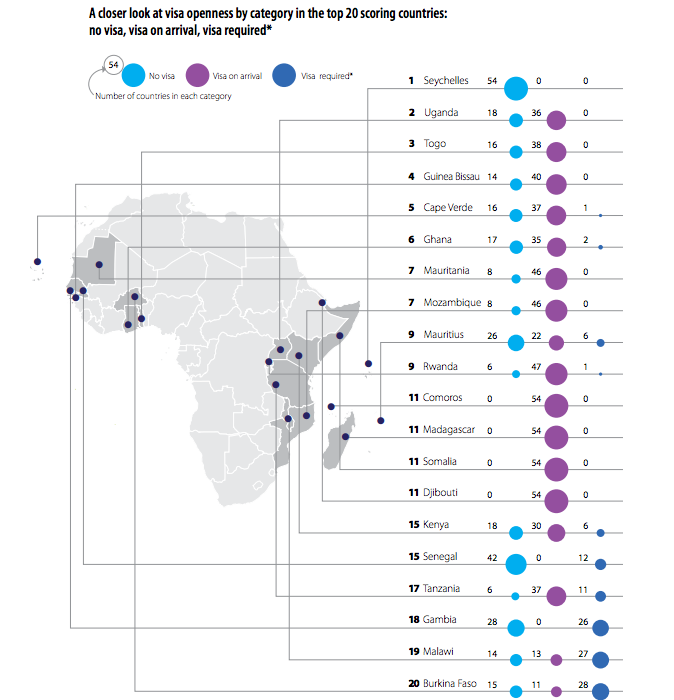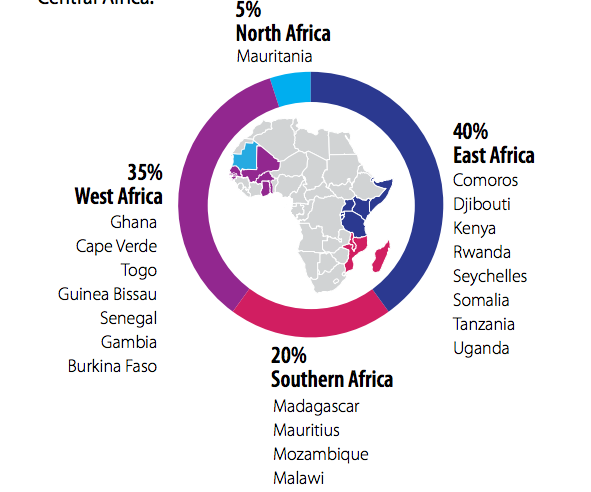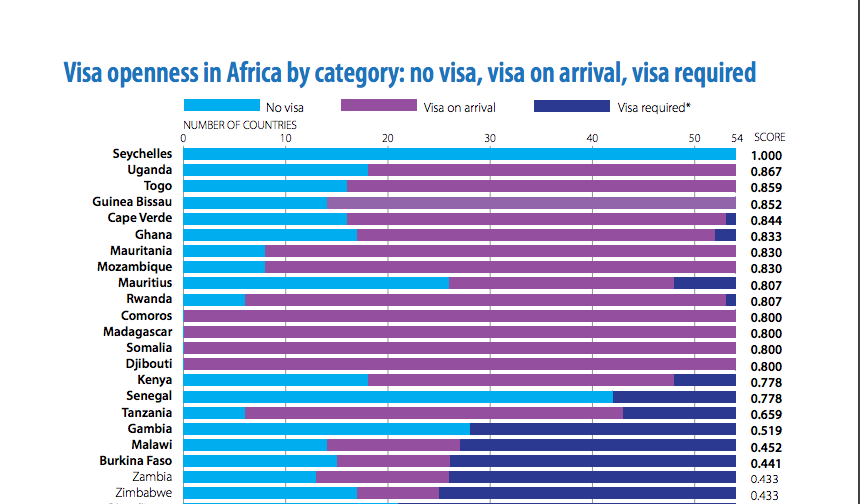The African Development Bank, in collaboration with the African Union Commission and the World Economic Forum has launched the second edition of the Africa Visa Openness Index which measures how open African countries are when it comes to visas by looking at what they ask of citizens from other African countries when they travel.
It aims to show at a glance which countries are facilitating travel for citizens of other countries and how: whether they allow people to travel to their country without a visa; if travelers can get a visa on arrival in the country; or whether visitors need to obtain a visa before travel.
Overall, Africans were able to travel more freely across the continent in 2016, as visa openness levels improved from 2015. However, many challenges remained.
The second Africa Visa Openness Index highlights pervasive regional differences in visa openness performance. For example, 75% of countries in the top 20 most visa-open countries are in either East or West Africa, while 20% are in Southern Africa. Only one country in the top 20 most open to visas is in North Africa (Mauritania), while no countries in Central Africa rank in the top 20. “I need 38 visas to move around Africa,” says Aliko Dangote, President and CEO of Dangote Group.
Uganda takes Second Position
Seychelles continues to lead the Index and remains the only African country on the continent to offer visa-free access for all Africans. Uganda was second in the continent followed by Togo in third position. Rwanda was ranked 9th, Somalia at 11th position, Kenya 15th and Tanzania at 17th position as shown in the chart below.
According to the report, 40% of countries in the top 20 most visa-open countries are in East Africa; 35% are in West Africa; 20% are in Southern Africa, and 5% are in North Africa. Central Africa still remains the most closed region. The good results in West Africa are due to the Free movement of persons protocol and in East Africa are a result of the high number of visa on arrival policies.
Data on visa openness was collected between September 2016 and January 2017. The primary source of information was the International Air Transport Association (IATA).
RELATED;



